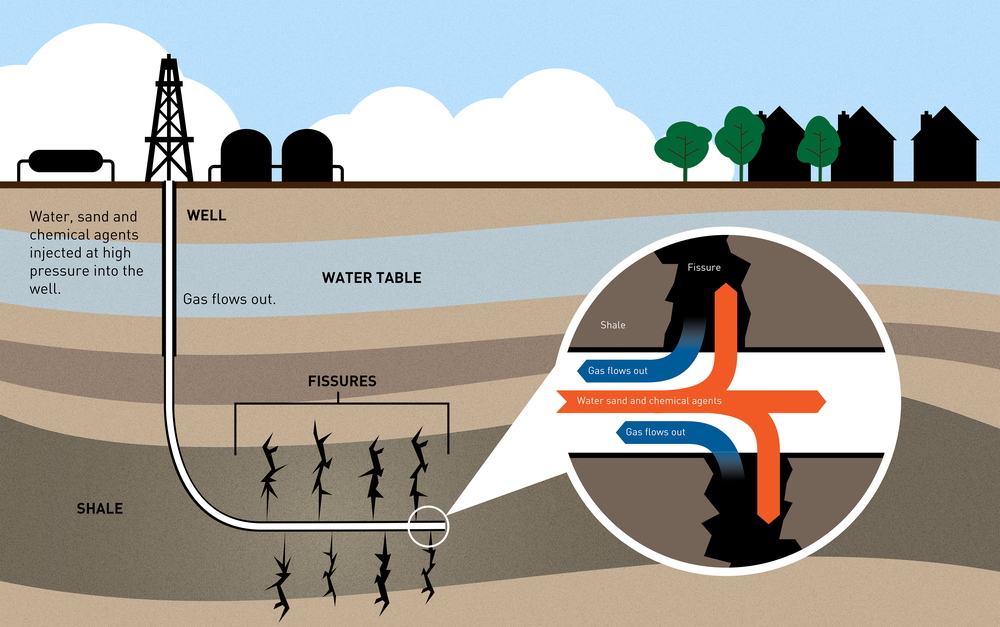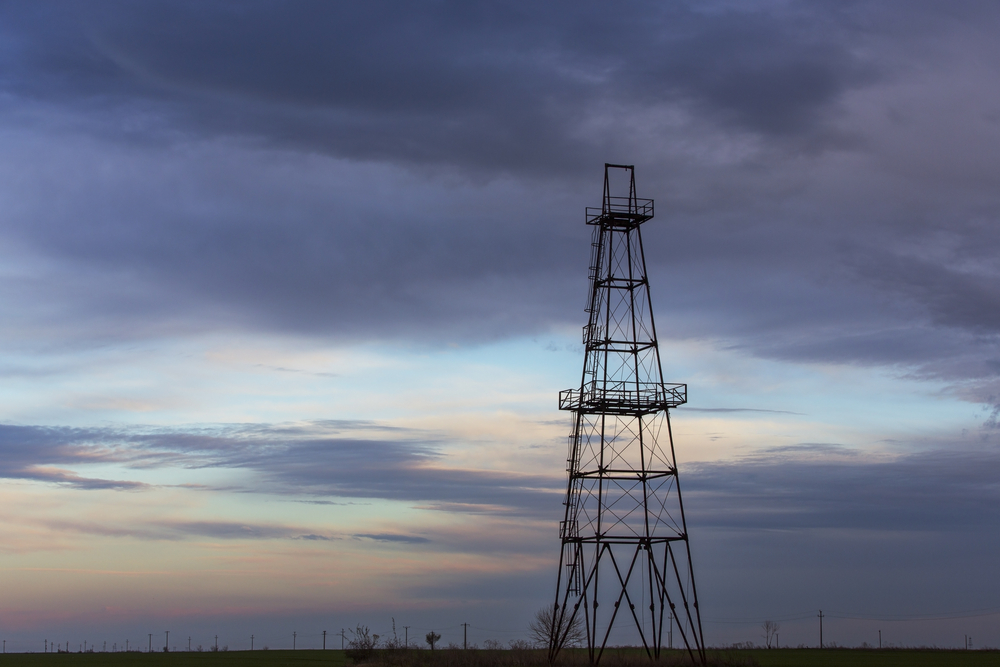Editor's Note: This post first appeared at NerdWallet.com.Click here to read the original version.
|The method of natural gas drilling known as hydraulicfracturing, or “fracking,” has caused controversy across the U.S.Advocates argue that it promises increased energy independence. Forothers, it means environmental catastrophe.
|In the ongoing debate, two things are for sure. The practice isresponsible for much of the recent spike in natural gas production in the UnitedStates, and homeowners are often caught in the middle.
|Those who lease their land for drilling can see huge profits,but some reports suggest that these profits come with risk for bothlessors and their neighbors – and who pays for these risks can be acomplicated question.
|What is fracking?
|“Fracking involves drilling down several thousand feet into arock formation that holds natural gas,” said Bruce Everett,associate professor of international business at Tufts University’sFletcher School of Law and Diplomacy. Drillers then pump a mixtureof high-pressure water and chemicals into the hole. “That cracksthe rock and creates pathways for gas to flow out of the well.”
|Drilling operations are left with two products: natural gas andwastewater. There are a few wastewater disposal methods. “You canput the water in a lined pond and let it evaporate, treat it orinject it underground,” said Everett. Injection is the most debatedmethod.
|Even the term “fracking” is controversial. According to ClaireSandberg of the Rainforest Action Network, some use “fracking” todescribe “the entire life cycle of natural gas wells.” Within theindustry, she added, “fracking” may refer to the injection portionof the drilling process.
|Does fracking pose risks to homeowners?
|Some suggest that fracking risks are often overstated. “Thereare some disruptive impacts of this technology, which arerelatively small compared to its benefits,” Everett said. Forexample, “fracking is normally not a threat to drinking water inany meaningful way. If it is, it’s because someone screwed up bigtime.”
|Anti-fracking activists disagree. “From start to finish, it’s adangerous process that presents numerous risks to homeowners andcommunities,” said Sandberg.
|Scientists are still investigating the extent and likelihood ofthe risks fracking entails. Still, many believe a recent uptick inearthquake activity is related to fracking.
|“The United States Geological Survey has linkedfracking waste water injection to a 5.6 magnitude earthquake inOklahoma, and there have been other scientific studies linkinginjection to earthquakes elsewhere,” said Patrick Sullivan of the Centerfor Biological Diversity.
|Earthquake trends are easier to identify in states likeOklahoma, which have long been seismically stable. Links are harderto prove in states like California – but the stakes are higher.“Fifty-four percent of California’s active waste water wells arewithin 10 miles of an active fault,” and many are near residentialareas, Sullivan said.
|Earthquakes aren’t the only possible consequence of fracking.Linda Capato of 350.org, an environmental advocacy group, said:“We’ve seen people who’ve had a hard time staying in their homesbecause of methane buildup related to fracking. There’s achance that if someone lights a candle in the house, the housemay explode.”
|Environmental risks often apply equally to those who’ve leasedtheir property for drilling and those who simply live near drillingsites and so may the economic impacts.
|Economist Janette Barth notes that fracking is often associatedwith diminished property values – which, sheargues, thwarts economic progress in the areas fracking is meant tohelp.
|“Not only is it difficult to get homeowners insurance forproperties with or near a gas well, it is also difficult to get amortgage,” she adds.
|Does insurance cover fracking damage?
|Nationwide Insurance made headlines in2012 when an internal memo stating that its policies did not coverhomeowners for fracking damage was leaked. In response to thefallout, Nationwide said that this was business as usual.
|Bob Hartwig of the Insurance Information Institute agrees: “Allhomeowners insurance policies exclude damage from such things asenvironmental contamination. This is nothing new.”
|Of course, pollution isn’t the only risk from fracking thatactivists have cited – and some of these risks may be covered.Homeowners with an earthquake endorsement can get coverage forearthquake damage, even if the quake is linked to fracking. “Ifthere’s a fire or explosion, as a general rule, that would becovered,” Hartwig adds.
|This only applies to homeowners who live near fracking sites.For those who’ve leased their land – in effect, making it abusiness – insurance is more complicated.
|“The liabilities arising from a business are not covered by ahomeowners policy,” Hartwig said. “Any agreements should bereviewed by an attorney to determine that the liability will beassumed by the company engaging in the activity.”
|What should homeowners with fracking damagedo?
|If you live near a fracking site and sustain covered damages,your homeowners orearthquakepolicy should pay. You may need to buy additionalendorsements to cover your risk.
|“Many of these earthquakes are happening in places where peopledon’t buy policies,” Capato points out.
|Homeowners who lease their land or experience pollution andother uncovered damages should consider fracking a legal issue.
|“If you lease your mineral rights to a company, the contractwill say the company has to do A, B, C and D, and if there’s aproblem, here’s what’s going to happen. It’s also potentiallycovered by state regulations,” Everett said. “The requirementfor homeownersinsurance is a relatively small one.”
|He adds, “The shale gas business started mainly in Texas. Peoplethere have worked out, over the last 150 years or so, how to dealwith drilling. A big body of law has developed.”
|Other parts of the country have a long way to go in regulatingfracking.
|“There is a lot of variation in the law from state to state, interms of how vigorously regulators seek to prevent damage in thefirst place, whether homeowners have administrative remedies andwhat burden of proof a homeowner must carry in court if initiatinga damages action,” said Lloyd Burton, a professor at the Universityof Colorado Denver School of Public Affairs.
|State and local governments will continue to address fracking asit develops. In the meantime, homeowners in some states facechanging landscapes – and changing risks.
Want to continue reading?
Become a Free PropertyCasualty360 Digital Reader
Your access to unlimited PropertyCasualty360 content isn’t changing.
Once you are an ALM digital member, you’ll receive:
- All PropertyCasualty360.com news coverage, best practices, and in-depth analysis.
- Educational webcasts, resources from industry leaders, and informative newsletters.
- Other award-winning websites including BenefitsPRO.com and ThinkAdvisor.com.
Already have an account? Sign In
© 2024 ALM Global, LLC, All Rights Reserved. Request academic re-use from www.copyright.com. All other uses, submit a request to [email protected]. For more information visit Asset & Logo Licensing.












